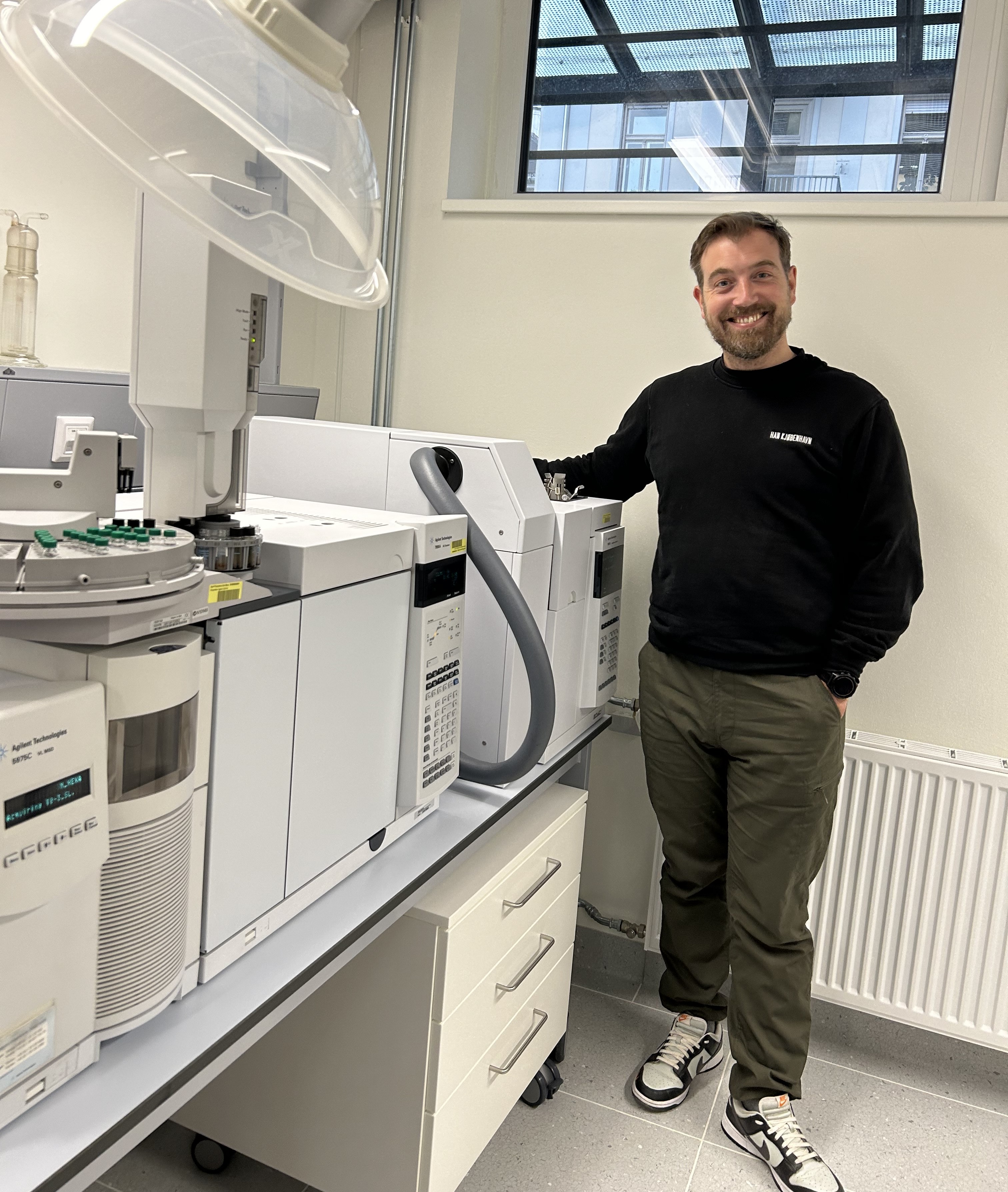Julien Antih
PHARMD, PHD
Laboratoire de pharmacognosie, phyto-aromatherapie
FACULTÉ DES SCIENCES PHARMACEUTIQUES ET BIOLOGIQUES
University of Montpellier
Interview with Julien Antih - a newly appointed Associate Professor at the Faculty of Pharmaceutical and Biological Sciences, University of Montpellier.
We are delighted to present an interview with Dr. Julien Antih, PharmD, PhD, who has recently been appointed as an Associate Professor at the Faculty of Pharmaceutical and Biological Sciences, University of Montpellier. With a remarkable journey that spans research, teaching, and international collaborations, Dr. Antih reflects on his path to this milestone. He discusses his experiences at the Faculty of Tropical AgriSciences (FTZ), where he first embraced the challenges and rewards of academic life, and shares insights into his current role. From valuable mentorships to his enduring passion for ethnopharmacology, this conversation is rich with advice and inspiration for aspiring researchers and scientists.
- How did you get involved in your current work?
In France, securing a position of associate professor is highly competitive, requiring candidates to pass a rigorous entry process. To succeed, prior experience as a temporary research and teaching assistant is necessary and I was fortunate to gain such experience. In 2022, I was invited to spend a year at the Faculty of Pharmacy, Université de Cité - Paris with Professor Sabrina Boutefnouchet who is a renowned research specialized in essential oils and clinical aromatherapy. Last September, I joined the Faculty of Pharmacy at the University in Montpellier in the same role. It was there when a new position opened, and my prior experience, including my research at FTZ, gave me the necessary support for the entry process - both in terms of teaching as well as research.
- What did you gain during your time at FTZ?
It was at FTZ that I could really first experience the thrill of scientific work: hands-on approach in the lab, writing your first article, getting it published in a renowned journal, being able to present your work at international conferences, and so on. Due to the pandemic, I only got to participate in one international field trip (India, 2021) but travels have now fully resumed. Besides, my time at FTZ provided me with the invaluable opportunity to connect with friends and colleagues from diverse backgrounds, and enjoy the international vibes ČZU and its campus is so known and appreciated for.
- Who influenced you the most and why?
My greatest influence was undoubtedly my supervisor, Professor Kokoška. His mentorship was instrumental in my development as a researcher. Under his guidance, I could develop essential skills such as academic writing, fieldwork experience and discipline in working in a lab. His support and encouragement played a crucial role in shaping my academic career - and so did his capacity to inspire through stories from his own fieldwork.
- What was your favourite subject/who was your favourite teacher at FTZ?
Since I joined FTZ as a PhD student, I didn’t have to take many classes. However, I’ve always had a deep passion for ethnobotany. This area of study fascinated me the most, as it intertwines plant research with cultural and traditional knowledge, a field I continue to explore in my research today.
- Any recommendations for current and future FTZ students?
Collaboration with your peers is vital. Engaging with colleagues allows you to brainstorm ideas, receive diverse perspectives on your research, generate fresh concepts, and simultaneously develop your mentoring skills. Keeping an open mind is crucial, as is building a strong network—these connections will form the foundation of your future professional opportunities.
- What are your plans for the future?
As a newly appointed associate professor at the Faculty of Pharmacy in Montpellier, I’m excited to join the QualiSud research unit at CIRAD, where I have been entrusted with leading the ethnopharmacology lab In addition to teaching courses on pharmacognosy, phytotherapy, and aromatherapy, my primary research will focus on exploring new sources of plants in relation to metabolic syndrome. I also have the honor of overseeing the faculty’s herbarium, one of the oldest in France, alongside those in Paris and Strasbourg. Last but not least, I very much look forward to continuing my research collaboration with Professor Kokoška on the antimicrobial activities of volatile compounds from essential oil-bearing plants.


